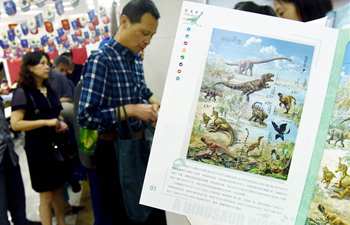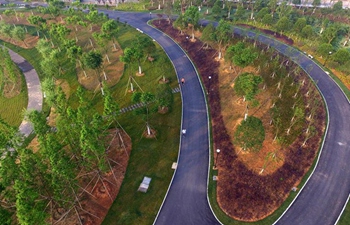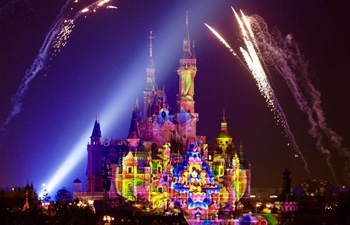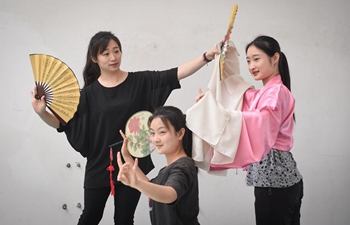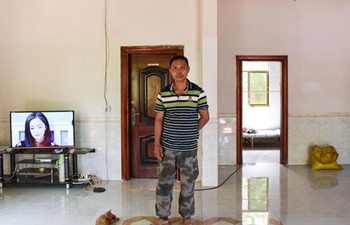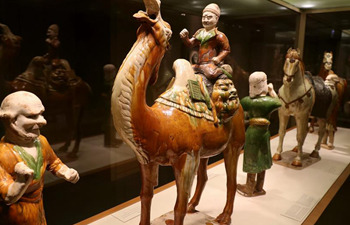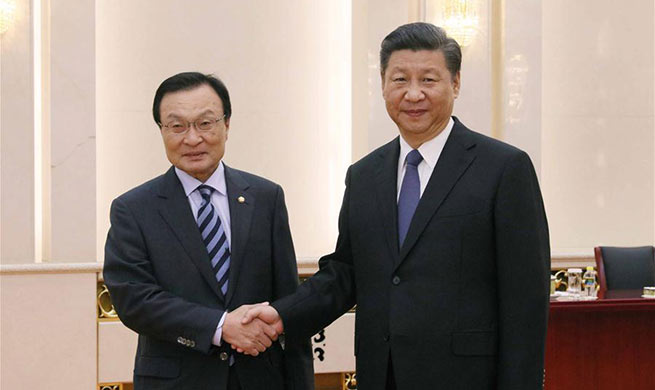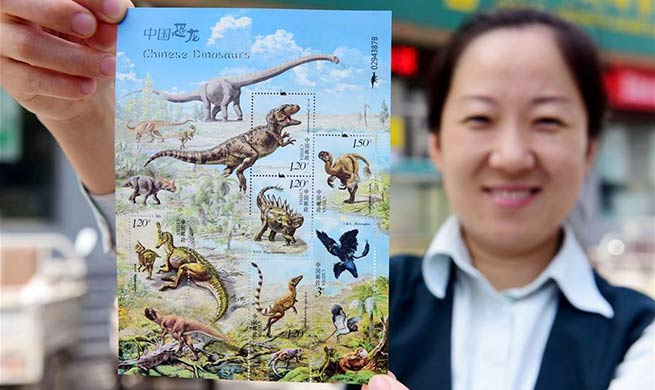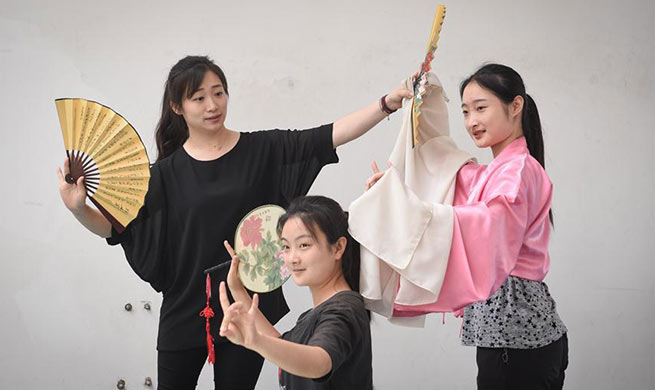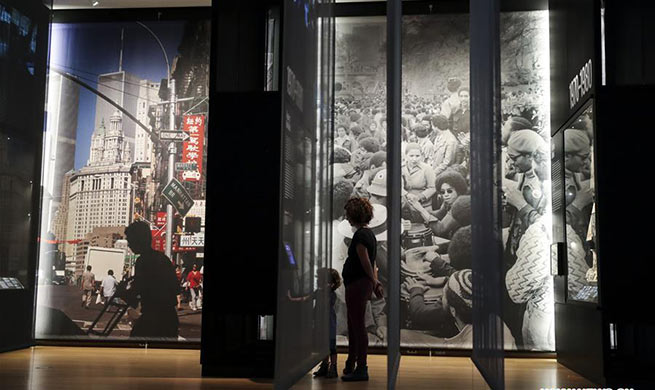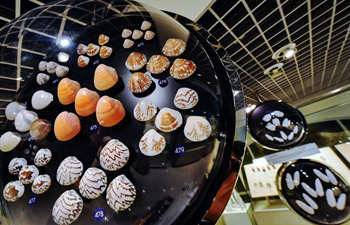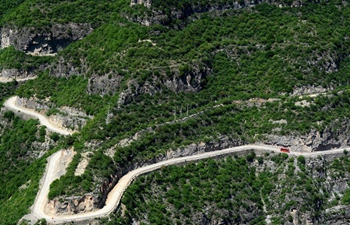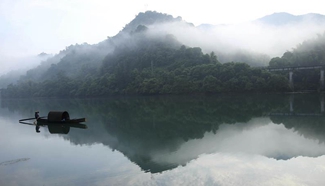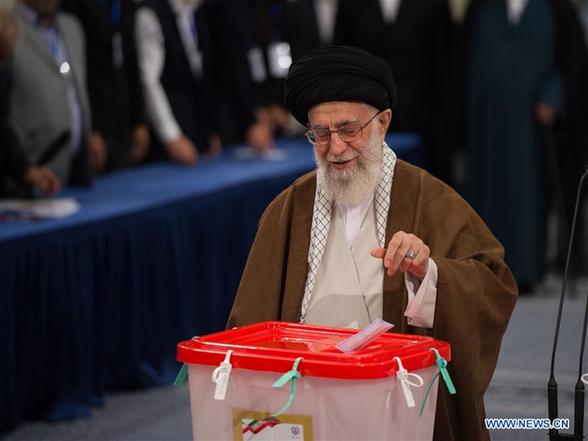
Iranian Supreme Leader Ayatollah Ali Khamenei casts vote in the presidential election at a polling station in Tehran May 19, 2017. Iran held the presidential election on Friday. (Xinhua/Meng Tao)
by Hassan Rouhvand
TEHRAN, May 19 (Xinhua) -- In certain areas in the capital city of Iran, long queues outside the polling stations on Friday morning mark the keynote vote for the country's most celebrated election.
The street carnivals of Tehran's night hours over the past few days aimed to cruise the voters to the ballot boxes at 8:00 a.m. local time (0330 GMT) on May 19 to decide on their next president.
"I am responsible for my future. If I do not vote today and the results turn out to contradict my will, I may regret it later," Neda Taherkhani, 26, said excitedly as she changed weight from one foot to the other restlessly.
She politely refused to talk about her choice, but seemed to be resolute at heart on her pick who, Taherkhani confidently contended, is an experienced and responsible politician and knows how to address the values most young people cherish.
"We have no other way, but to endear a tolerant space, to accept each other's existence, to live up with diverse opinions and tastes, then to grow up as a descent mother, father or politician for the good of next generation," Taherkhani, the master's graduate of social science from Tehran's Azad Markazi University, argued.
"I am here with three of my friends, of the same mind, to vote for such values, not merely for nan (bread) and Ab (water), although they are key issues of life as well," Taherkhani said, smiling and standing in the queue outside of the iconic mosque of Tehran, Hosseinieh Ershad, since the early hours when the polls opened.
Iranian Supreme Leader Ayatollah Ali Khamenei hailed the elections as the sign of democracy and urged the Iranians to go to the polling stations to vote at the earliest time.
Some 56 million Iranians are eligible for voting and will choose the next president for a four-year term.
On Thursday, Iranian Interior Ministry officially announced the names of incumbent President Hassan Rouhani, Ebrahim Raisi, Mostafa Agha-Mirsalim and Mostafa Hashemi Taba as the four hopefuls for the Friday presidential election.
The prevailing themes of the debates in the current Iranian political scene revolve around either reform-oriented topics or subject matters which principalists, commonly referred to as conservatives, pursue.
Lined up in front of the mosque, Mohsen Namazi, 24, a bank clerk spirited by the high turn-out of the voters, constantly leaned back and forth, right and left, to observe the number of people in the queue and their passion for the occasion.
When asked about his expectation for the voting, he highlighted "promises" and "glory."
"As you see, these people here all pin hopes on the Islamic establishment and its promises for a better society and glory of Iran," he said.
"Regardless of which candidate to secure the required vote, they are faithful to the leader and the values for which the revolution erupted four decades ago," Namazi said.
Namazi's father is a veteran of the 1980s war between Iran and Iraq, and has fought for "the good of the country and the elevation of Islam."
"This election is unique in its nature. It comes after the country has resolved one of its major disputes with America (the nuclear issue), and my father told me that now there is no excuse for any candidate, pertaining to their good performance, in the next term," he said.
"We will not stop questioning, since this is the legacy of those soldiers who sacrificed their body, their only wealth, for the sake of the country," Namazi noted.
The clock of the election day chimed 11: 30 a.m. local time, with eight and half hours left before the scheduled closure of the polls.
Incumbent President Hassan Rouhani and conservative Ebrahim Raisi, the main rivals in the race, are both confidants of the Islamic establishment but represent different schools of political thoughts.
The centrists, led by the Rouhani, are hoping not to lose their current sovereignty over the conservatives.
If no candidate garners more than 50 percent of the votes, a run-off will be held on May 26 between the top two vote-getters.




